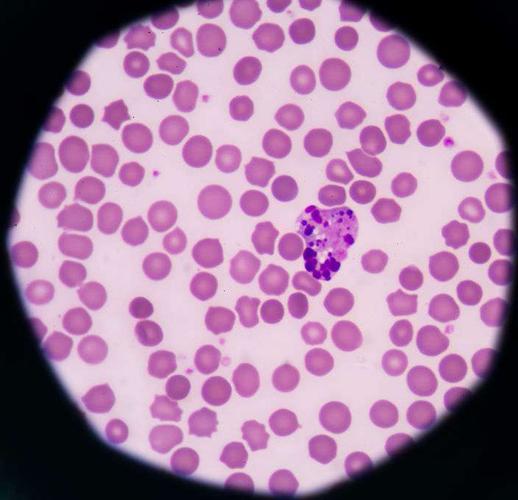Do you really have cancer if you are diagnosed with a tumor?
- Normal Liver Cells Found to Promote Cancer Metastasis to the Liver
- Nearly 80% Complete Remission: Breakthrough in ADC Anti-Tumor Treatment
- Vaccination Against Common Diseases May Prevent Dementia!
- New Alzheimer’s Disease (AD) Diagnosis and Staging Criteria
- Breakthrough in Alzheimer’s Disease: New Nasal Spray Halts Cognitive Decline by Targeting Toxic Protein
- Can the Tap Water at the Paris Olympics be Drunk Directly?
Do you really have cancer if you are diagnosed with a tumor? Can the tumor be eliminated?
Do you really have cancer if you are diagnosed with a tumor? “Tumor” must be familiar to everyone, as long as the mention of tumor will immediately remind you of two words: cancer!
Yes, in the eyes of people without professional medical knowledge, tumors and cancers are equal relations.
For this reason, some people blindly judge themselves as long as they find a tumor during the physical examination and have not listened to the doctor’s professional explanation, believing that they have cancer, they can’t be cured, and they can only spend money. Continue your life or go home and wait for death!
However, as long as the tumor is detected, is it really cancer?
First of all, everyone must understand that tumors are actually new organisms that appear on the body.
It belongs to a genetic disease, but its essence is not hereditary, but the original normal cells of the body. Under the influence of internal and external factors, the DNA has mutated, and they are separated from the regulation mechanism of normal cells;

That is, tumor cells do not have the ability to age and die. This new cell will continue to divide and proliferate in the patient’s body, and finally form a new object somewhere.
Because this new organism is basically in the state of a local mass, the clinic also named this disease “tumor”!
Simply judging from the characteristics of tumors, it seems that it refers to cancer! However, not all tumors are cancers clinically. Cancer is just one type of tumor!
Clinical research and experiments on tumors have not been stopped. According to the biological characteristics of tumors and the degree of harm to the body, tumors are clinically divided into two categories: benign and malignant.
Benign tumors
The so-called benign tumor refers to the type that grows very slowly, has a very clear boundary with the surrounding area, has a regular shape, has an envelope covering the surface, and does not have the ability to infiltrate and metastasize;
Malignant tumors
Malignant tumors are completely different. Malignant tumor cells proliferate very fast. These cells not only destroy the normal structure of the primary organs and cause dysfunction of the body, but also have the functions of metastasis, infiltration and spread;
After entering the middle and late stages, it will invade many organs, tissues and bones of the patient’s body, and ultimately threaten the life and health of the patient. And this kind of malignant tumor is commonly known as cancer!
Histologically, malignant tumors can be divided into two major categories. The first category is the malignant transformation of epithelial cells, such as lung cancer, gastric cancer, colorectal cancer, etc., which are typical epithelial tissue cancers.
The other type is the product of malignant transformation of the mesenchymal tissue, which is clinically called sarcoma, such as fibrosarcoma, leiomyosarcoma, etc.!
So the question is, how should the tumor be treated and how to eliminate it? First of all, the treatment of benign tumors is much simpler than that of malignant tumors, because the mutated cells of benign tumors do not have the ability to metastasize and infiltrate.
Usually, when the benign tumor grows too small, does not cause damage to the organ, and the patient has no symptoms, it can be observed by regular review.
If the benign tumor is too large and the patient has obvious symptoms, it can be removed by surgery. Surgical removal of benign tumors is basically equivalent to once and for all;
The treatment of malignant tumors is relatively complicated, which involves the specific location, pathological type, stage, age and other aspects of the patient.
The treatment principle of malignant tumors is also based on surgery, but patients often need to cooperate with drugs, radiotherapy and chemotherapy to control the development of the postoperative condition.
Once the patients miss the opportunity of surgical treatment, they can only rely on radiotherapy and chemotherapy, targeted drugs, immunotherapy, hyperthermic perfusion therapy, etc. to control the development of the disease, find suitable surgical opportunities, prolong life and improve the quality of life!
All in all, the detected tumor is not necessarily cancer, it may be ordinary benign tumors, such as polyps, uterine fibroids, etc., are all within the scope of benign tumors.
Even if a malignant tumor is detected, there is no need to be overly nervous. After all, the current medical technology is very advanced and is constantly improving. Many patients with malignant tumors can achieve good prognostic results after receiving treatment.
(source:internet, reference only)
Disclaimer of medicaltrend.org
Important Note: The information provided is for informational purposes only and should not be considered as medical advice.



